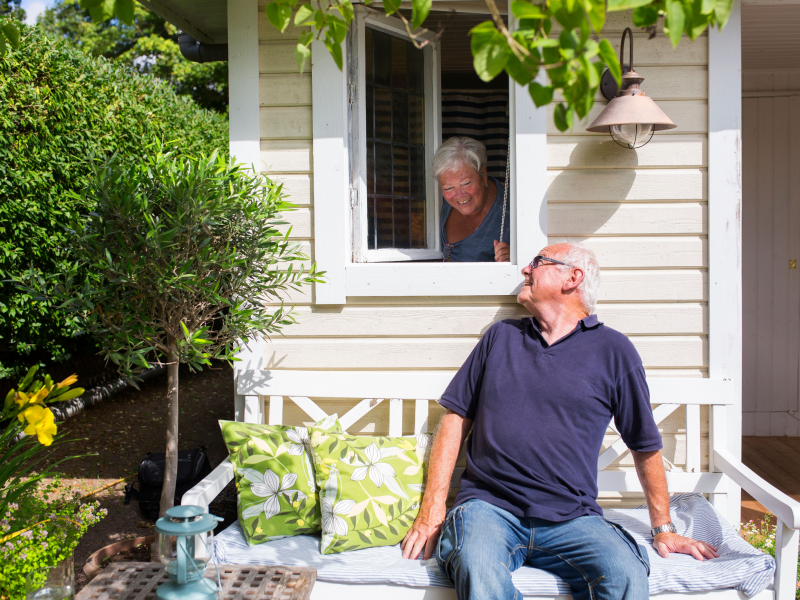Las Vegas, often referred to as the “Entertainment Capital of the World,” is a vibrant and bustling city located in the Mojave Desert in southern Nevada. It is renowned for its bustling nightlife, world-class casinos, luxurious resorts, and extravagant entertainment options. This, coupled with the area’s dry, hot weather makes Las Vegas a favorite destination among the country’s older population.
Among the most popular parts of Las Vegas is the Las Vegas Strip, a 4.2-mile stretch of South Las Vegas Boulevard. The Strip is home to many of the city’s most famous landmarks, including iconic spots like the Bellagio, Caesars Palace, MGM Grand, The Venetian, and The Sphere. Here you will find no shortage of gaming, dining, shopping, and entertainment experiences.
But as much as Las Vegas is known for its dazzling lights and elaborate shows, it is also an area of sublime natural beauty. Las Vegas is surrounded by several stunning natural landscapes that offer a range of outdoor activities and scenic beauty, including Red Rock Canyon, Valley of Fire State Park, and Mount Charleston, just to name a few.
With so much going for it, it can be easy to think that living in Las Vegas is out of this world expensive, especially for seniors, but in reality; the city’s cost of living is just slightly higher than the national average. Still, finding stable and affordable housing in an attractive city like Las Vegas can be challenging for seniors living on limited incomes.
However, with the right resources and information, finding a suitable home that you can afford in Las Vegas is possible. This guide aims to provide seniors and their families with a comprehensive overview of the options that are available when it comes to finding affordable housing in Las Vegas that’s designed to accommodate seniors living on limited incomes. The topics covered include:
Table of contents:
- Low-Income Seniors’ Housing Options in Las Vegas, NV
- Finding Available Housing for Low-Income Seniors in Las Vegas, NV
- Additional Support and Resources for Low-Income Seniors in Las Vegas, NV
- Frequently Asked Questions About Qualifying for Low-Income Housing Programs
- How Senioridy Can Help You Find Affordable Senior Housing in Las Vegas, NV

Low-Income Seniors’ Housing Options in Las Vegas, NV
In Las Vegas, several federal, state, and local programs can help seniors find low-income housing in or around the city. Many of these options come in the form of HUD (The U.S. Department of Housing and Urban Development) Subsidized Housing which involves the following programs:
- Section 202 Supportive Housing for the Elderly Program: The Section 202 program provides capital advances to private, nonprofit sponsors to finance the construction of supportive housing for very low-income elderly residents. Rent is typically capped at 30% of the senior’s, or the entire household’s (if others are living with the senior), adjusted income.
- Section 8 Housing Choice Voucher Program: Under the Housing Choice Voucher Program, formerly known as “Section 8,” seniors can choose their housing, provided it meets the program’s requirements. The voucher covers a portion of the rent based on the senior’s income.
Because of the popularity of these programs, they tend to have lengthy waiting lists and the demand far outweighs available units. However, it is important to note that the programs offered by The Department of Housing and Urban Development are not the only pathways to securing affordable housing for low-income seniors. Other options include:
- Nevada Rural Housing Authority (NRHA): The NRHA offers affordable housing solutions in rural parts of Nevada. While Las Vegas is not rural, the NRHA provides a model of support that can be emulated by local agencies.
- Low-Income Housing Tax Credit (LIHTC) Properties: These properties are privately owned but receive tax credits in exchange for providing affordable units to low-income tenants. Many LIHTC properties in Las Vegas are designed with seniors in mind.
- Public Housing Authorities (PHAs): PHAs manage public housing units and administer voucher programs. The Southern Nevada Regional Housing Authority (SNRHA) is the primary PHA serving Las Vegas, offering several programs for seniors.

Finding Available Housing for Low-Income Seniors in Las Vegas, NV
Finding low-income housing in a city like Las Vegas requires persistence and resourcefulness. Here are a few steps to help you navigate the process:
- Research and List Potential Options: Start by identifying potential housing options that can accommodate your wants and needs. Use online resources like Senioridy’s affordable apartment search tool, or visit the websites of the above programs and organizations to see available properties and waitlist information.
- Visit Housing Authorities and Non-Profits: Local housing authorities and non-profit organizations can provide valuable assistance. In Las Vegas, the SNRHA is a key resource. Additionally, organizations like Nevada HAND and HELP of Southern Nevada offer affordable housing and support services for seniors.
- Check Eligibility Requirements: Each housing program has specific eligibility requirements based on income, age, and other factors. Ensure you meet these requirements before applying. For example, to qualify for Section 202 housing, seniors must be 62 or older with an income below 50% of the area median.
- Prepare Necessary Documentation: When applying for housing, you’ll need to provide documentation such as proof of income, identification, and medical expenses. Gather these documents in advance to streamline the application process.
- Apply Early and Follow Up: Affordable housing for seniors often has long waitlists. Apply as early as possible and regularly follow up on the status of your application. Persistence can pay off in securing a spot sooner.

Additional Support and Resources for Low-Income Seniors in Las Vegas, NV
Beyond affordable housing, low-income seniors in Las Vegas can also apply for several programs and services that can help improve their quality of life and extend their finances. These programs include:
- Energy Assistance Program (EAP): Administered by the Nevada Division of Welfare and Supportive Services, the Energy Assistance Program helps low-income households, including seniors, with their energy bills. This assistance can make housing more affordable by reducing utility costs.
- Supplemental Nutrition Assistance Program (SNAP): SNAP provides financial assistance for the purchasing of food. Eligible seniors can use these benefits to free up more of their income for housing expenses.
- Medicaid: Medicaid offers healthcare services for low-income individuals. Seniors who qualify can receive assistance with medical expenses, which can help alleviate financial strain.
- Senior Centers and Community Programs: Las Vegas has several senior centers and community programs that offer social activities, meals, transportation, and other support services. Engaging with these programs can improve overall well-being and provide additional assistance.
Frequently Asked Questions About Qualifying for Low-Income Housing Programs
Low-income senior apartments are always in high demand, so it is not uncommon for an applicant to be kept on a waiting list while they wait their turn for a unit to become available. Some applicants may even be outright denied eligibility for one of several reasons. If you are applying for a low-income senior housing program, then here are answers to some of the most common questions about qualifying and being approved.

Q1. What are the eligibility requirements for low-income senior housing in Las Vegas?
Seniors applying for low-income senior housing in Las Vegas must be at least 62 years old and have a gross annual income that does not exceed HUD’s local income limits. However, some non-HUD programs may accept seniors as young as 55, so it is important to always check the requirements of any program you are considering. Applicants must also meet the terms of the lease for the apartment they are applying for.
Q2. Can I be denied low-income senior housing?
Yes. Since the eligibility requirements can be different for each program, it is important to know what the requirements are for the program you’re interested in before you apply, so you can hopefully avoid a denial. However, it is important to note that even if you meet the basic eligibility requirements, you can still be denied for a range of different reasons. The most common reason for denial is having an income that exceeds the income limit imposed by the housing program being applied for, but other reasons can include having a low credit score, a poor rental history, a criminal record, and/or the need for ongoing medical care or daily assistance that’s not provided by the apartment community.
Q3. Can I appeal my denial?
Yes. If you apply for a program and are denied, you will receive a written notice from the program that includes the reason for denial. In that letter, there will also be instructions for filing an appeal.
Q4. How can I improve my chances of being approved for low-income senior housing in Las Vegas?
When applying for low-income senior housing in Las Vegas, the most important thing you can do is to provide the program’s authorities with complete and accurate information on your application. If you submit an incomplete application or provide false information, then your application will be denied. You should also plan on being present at all requested interviews and follow up whenever needed as missing one can also result in a denial.
How Senioridy Can Help You Find Affordable Senior Housing in Las Vegas, NV
The search for affordable housing for seniors in Las Vegas can be lengthy and challenging, but persistence is key. Regularly check waitlist statuses, follow up on applications, and explore new options as they become available.
You should also take advantage of the numerous resources and programs that are available to help, like the low-income housing search engine and other resources provided by Senioridy. At Senioridy, we provide you with the information you need to understand low-income senior housing options, the myriad of local and federal assistance programs, and more. We even offer tips on staying organized, dealing with taxes, long-term, and other topics that seniors might find informative and beneficial.
Whether through Senioridy, the HUD programs, local housing authorities, or non-profit organizations, there is support available to ensure that every senior has access to safe and affordable housing. With the right approach and resources, seniors in Las Vegas can find a place to call home that they can comfortably afford.

